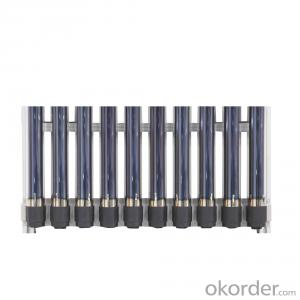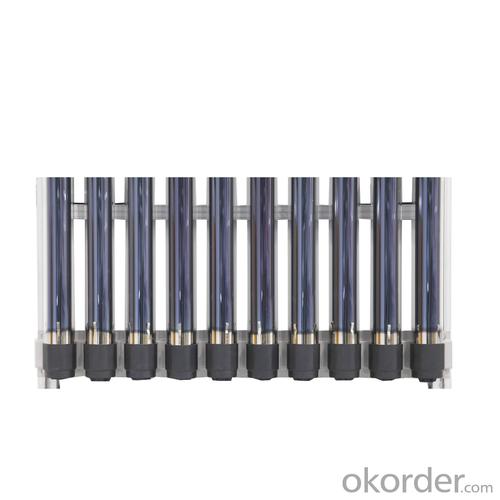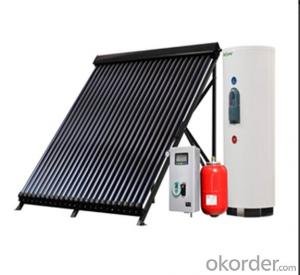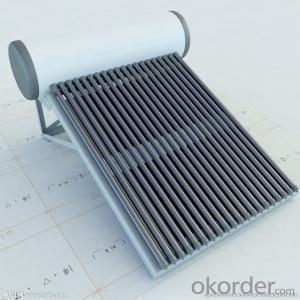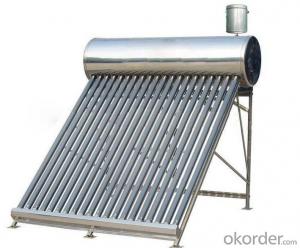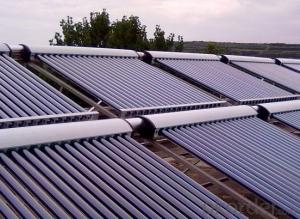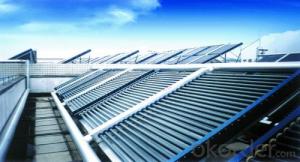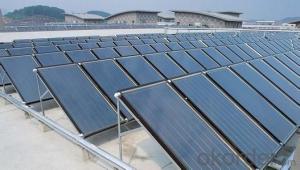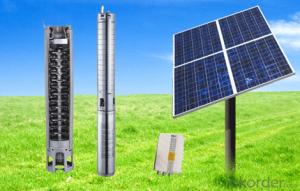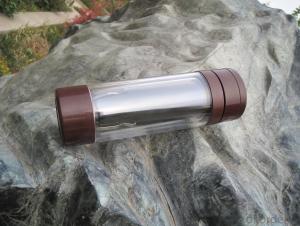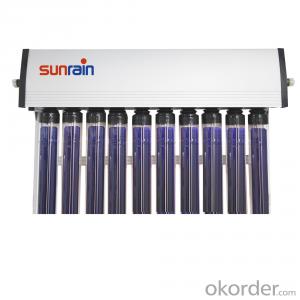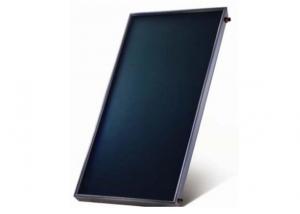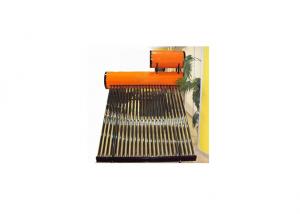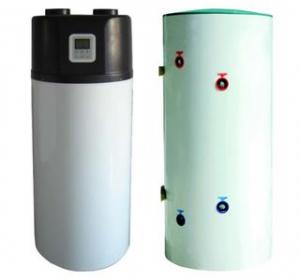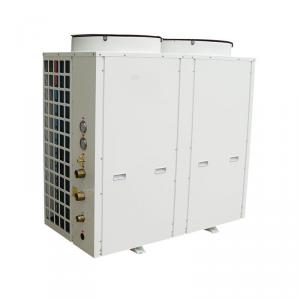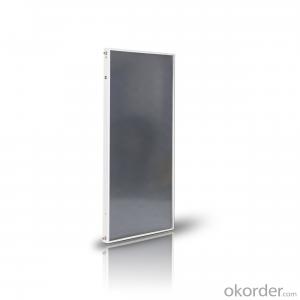Ariston Solar Commercial Heat Pump Water Heater
- Loading Port:
- China Main Port
- Payment Terms:
- TT OR LC
- Min Order Qty:
- -
- Supply Capability:
- -
OKorder Service Pledge
OKorder Financial Service
You Might Also Like
R410A gas, environmentally friendly.
Free modular combination.
Unique defrosting flow path.
Air side reserved special defrosting flow path, when the system is defrosting, the four-way valve is reversing , the system will absorb energy from special defrosting flow path, the defrosting progress will have no impact on water temperature.
High efficiency compressor.
For 50Hz units, Copeland’s efficient scroll compressor.
For 60Hz unit, Danfoss’s efficient scroll compressor.
Flexible design, low temperature design guarantees performance.
Electric water flow valve supplies hot water at a stable temperature and expands the life of compressor.
50Hz units are CE certified.
- Q: Can a solar water heater be used in areas with hard water?
- Yes, a solar water heater can be used in areas with hard water. However, it is important to consider the potential impact of hard water on the system's performance and lifespan. Hard water contains high levels of minerals like calcium and magnesium, which can lead to mineral buildup and scaling in the solar collectors and pipes. Regular maintenance such as descaling and cleaning may be required to ensure optimal performance. Additionally, using a water softener or installing a water treatment system can help minimize the negative effects of hard water on the solar water heater.
- Q: Can solar water heaters be used for both residential and commercial purposes?
- Yes, solar water heaters can be used for both residential and commercial purposes.
- Q: Can a solar water heater be used in areas with limited access to information about solar energy?
- Yes, a solar water heater can still be used in areas with limited access to information about solar energy. While knowledge about solar energy may be limited, the basic functionality of a solar water heater can be understood and utilized without extensive information. The technology behind solar water heaters is relatively straightforward, and with proper installation and maintenance instructions, individuals in such areas can still benefit from the use of this renewable energy source.
- Q: Can a solar water heater be integrated with a home automation system?
- Yes, a solar water heater can be integrated with a home automation system. By connecting the solar water heater to the home automation system, users can remotely control and monitor the temperature, schedule heating cycles, and receive alerts or notifications about maintenance or malfunctions. This integration offers increased convenience, energy efficiency, and control over the water heating system.
- Q: How does the installation cost of a solar water heater compare to a traditional water heating system?
- The installation cost of a solar water heater is typically higher than that of a traditional water heating system. However, the long-term savings on energy bills and the potential for government incentives and tax credits can offset the initial investment and make solar water heaters a cost-effective option in the long run.
- Q: Can a solar water heater be used in areas with limited access to energy efficiency standards?
- Yes, a solar water heater can be used in areas with limited access to energy efficiency standards. Solar water heaters rely on the sun's energy to heat water, making them a sustainable and environmentally friendly option. They do not require a constant power supply, making them suitable for areas with limited access to energy efficiency standards. However, it is essential to ensure proper installation and maintenance to maximize efficiency and effectiveness.
- Q: Can a solar water heater be used in areas with limited access to electricity grid connections?
- Yes, a solar water heater can be used in areas with limited access to electricity grid connections. Solar water heaters utilize the energy from the sun to heat water, eliminating the need for electricity. They are a sustainable and cost-effective solution for areas without reliable access to the electricity grid, providing hot water for various purposes.
- Q: What is the basic structure of solar water heater
- 3, support, is responsible for supporting the fixed water tank and heat collector components, like the human thigh, so that the water tank heat collector Station facade to the sun;4, pipeline, pipe is connected with water points and solar components, like the blood vessels will be sent to the hot water, cold water to the tank;5, intelligent control system, intelligent control system is like the human brain, control the safe operation of the entire solar energy.
- Q: How does a solar water heater impact the water temperature consistency in a household?
- A solar water heater can greatly impact the water temperature consistency in a household. By utilizing the sun's energy to heat water, it provides a consistent and reliable source of hot water. Unlike traditional water heaters, which rely on electricity or gas, a solar water heater can maintain a steady temperature even during power outages. This means that regardless of external factors, such as weather conditions or utility disruptions, a solar water heater can help maintain a consistent water temperature in a household, providing comfort and convenience to its users.
- Q: Can a solar water heater be used in areas with limited access to educational resources?
- Yes, a solar water heater can be used in areas with limited access to educational resources. Solar water heaters are relatively simple and can be installed and maintained with basic knowledge and training. Additionally, there are many resources available online and in various languages that provide step-by-step instructions and troubleshooting tips for solar water heater installation and maintenance. Therefore, even in areas with limited access to formal education, individuals can still benefit from the use of solar water heaters as a cost-effective and environmentally friendly solution for heating water.
Send your message to us
Ariston Solar Commercial Heat Pump Water Heater
- Loading Port:
- China Main Port
- Payment Terms:
- TT OR LC
- Min Order Qty:
- -
- Supply Capability:
- -
OKorder Service Pledge
OKorder Financial Service
Similar products
Hot products
Hot Searches
Related keywords
